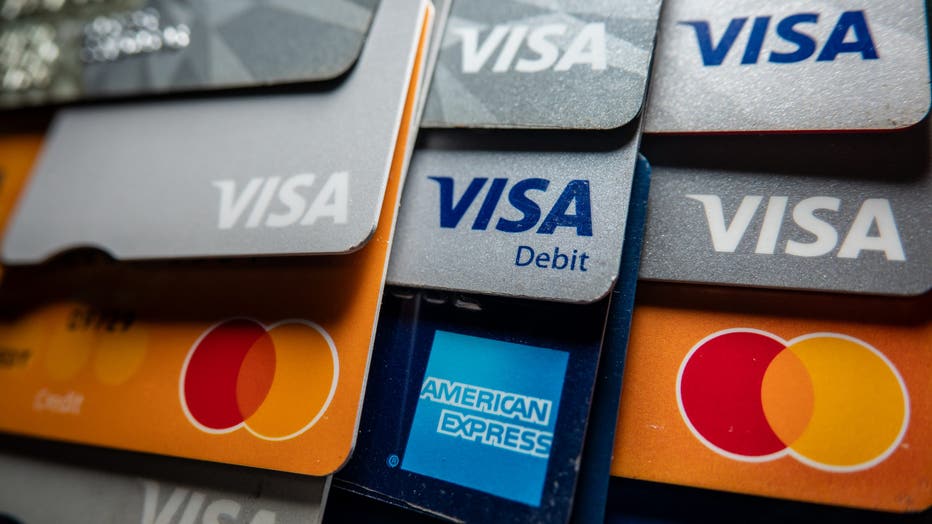What's driving Americans' record-high credit card debt? Annual survey reveals answers
Credit card debt rises to record levels
FOX Multimedia Reporter Kennedy Hayes joins LiveNOW from FOX to talk about rising credit card debt in December 2024.
Nearly half of Americans are carrying credit card debt, according to a recent Bankrate survey, and with interest rates averaging more than 20%, industry analysts warn carrying a balance is a slippery slope.
According to the New York Fed, Americans hold a collective $1.2 trillion in credit card debt. Of those debt holders, 64% say they’ve delayed or avoided other big financial decisions because of their credit card balances.
What’s the biggest reason for carrying a credit card balance?
By the numbers:
Nearly half of credit card debt holders say the main reason they carry a balance is because of an emergency or unexpected expenses, the survey found.
Of those, 15% said it was due to emergency medical bills, 9% said it was for car repairs, 7% for unexpected home repairs and 16% for another type of emergency or unexpected expense.
RELATED: Judge scraps Biden-era rule capping credit card late fees: What to know
The survey found 28% of people hold a credit card balance to cover day-to-day expenses like groceries, childcare and utilities. Only 11% said they carry a balance for retail purchases like clothes or electronics, while 9% said they carry a balance for vacation or entertainment expenses.
More than half (53%) said they’ve carried a balance for at least a year. That’s down from 60% in June 2024. About 38% of people surveyed said they’ve been in debt for less than a year.

Americans hold a collective $1.2 trillion in credit card debt (Photo Illustration by Anna Barclay/Getty Images)
Dig deeper:
Surprisingly, households with the highest incomes are more likely to carry credit card debt for at least a year, the survey found.
Credit card defaults on the rise
Why you should care:
Credit card defaults are on the rise for Americans, reaching the highest level in 14 years in January. U.S. credit card defaults jumped to a record $46 billion from January through September 2024, according to data analyzed by BankRegData.
With high levels of credit card debt and high inflation, many consumers have found themselves unable to cover monthly payments, leading some to default.
RELATED: The easiest states to save money in 2025
A borrower goes into default when they miss credit card payments for over 180 days, roughly six months. When there is a failure to pay over such a long period, banks generally take this as a sign that a borrower won’t pay the debt anymore, financial advisors told The Associated Press.
RELATED: It now costs nearly 300K to raise a child; here’s where it’s most expensive
Defaulting on credit card debt can have serious consequences, including a negative impact on credit reports that lead to a long-lasting effect on the ability to borrow money, said Sotir.
How to pay down credit card debt
What you can do:
According to bankrate, consider these four actions to manage your credit card debt:
- Include debt repayment in your budget
- Apply for a balance transfer card
- Consider a debt consolidation loan
- Work with a credit counselor – Bankrate recommends choosing a nonprofit credit counseling service if you take this route
The Source: This report includes information from Bankrate and The Associated Press.

